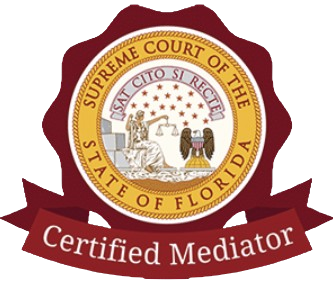Trauma and PTSD Counseling in West Palm Beach, Florida
Dr. Susan Christiansen, Ph.D., LMFT is a licensed therapist in West Palm Beach, Florida. Dr. Christiansen provides compassionate, personalized counseling and therapy for individuals dealing with the symptoms or effect of Trauma and Post Traumatic Stress Disorder (PTSD) in West Palm Beach and throughout Palm Beach County and Southeast Florida.
Schedule An Appointment
Diligently working to help people discover alternative possibilities that empower them to move through a wide variety of life’s challenges.
Therapy for Trauma and Post Traumatic Stress Disorder (PTSD): Reclaim Your Life from the Shadows of the Past
Are you struggling with a traumatic experience in West Palm Beach or in surrounding areas throughout Southeast Florida? Trauma has a way of echoing long after the danger is gone. Post Traumatic Stress Disorder (PTSD) may develop after a person is exposed to one or more traumatic events, such as major stress, sexual assault, war or combat situations, terrorism, or other threats to a person’s life. The experience may have passed, but the body, mind, and emotions can hold onto it — reacting to everyday life as though the threat is still present.
I’m Dr. Susan Christiansen, Ph.D., LMFT, and I provide specialized counseling for Trauma and PTSD in West Palm Beach and across Palm Beach County. For over 20 years, I’ve helped individuals understand their trauma responses, manage symptoms, gain control, and gradually reclaim peace, safety, and connection.
Approximately 223.4 million people (70% of adults) in the U.S. have experienced some type of traumatic event at least once in their lives. When in danger, it’s natural to feel afraid. This fear triggers many split-second changes in the body to prepare to defend against the danger or to avoid it. This “fight-or-flight” response is a healthy reaction meant to protect a person from harm.
However, in Post Traumatic Stress Disorder, this reaction is changed or damaged. People who have PTSD may feel stressed or frightened even when they’re no longer in danger. Whether your trauma was recent or happened years ago, it’s not too late to heal. As an experienced mental health professional, I have seen firsthand how strategic trauma therapy to treat PTSD symptoms and address traumatic life experiences helps patients progress through the healing process.
If you’re struggling with painful memories, flashbacks, emotional numbness, or anxiety that feels unshakable, you are not alone. We can treat PTSD and related mental health issues, helping you to develop skills for daily functioning and emotional well-being in a supportive environment. My practice offers a safe, compassionate space to begin your healing journey at your own pace. I approach PTSD treatment with structure, care, and respect.
Call me, Dr. Susan Christiansen, Ph.D., LMFT, now at (561) 688-8787(561) 688-8787 or complete my online form to request a free introductory call if you or someone you know is struggling with PTSD.
Key Takeaways
- Dr. Susan Christiansen, Ph.D., LMFT offers trauma and PTSD counseling in West Palm Beach, FL with telehealth appointments available across Florida.
- Traumatic events leading to PTSD can include extreme stress, war or combat situations, sexual assault, witnessing violent encounters, terrorism, threats to one’s life, or other extreme or dangerous experiences.
- Symptoms of PTSD can include flashbacks, nightmares, emotional disconnection, hypervigilance, mood swings, anxiety, and depression.
- Goals and benefits of therapy can include emotional recovery and stabilization from trauma, PTSD, and related experiences.
- PTSD and trauma counseling is for individuals who have experienced abuse, violence, accidents, grief, or emotionally overwhelming events.
- Therapy for PTSD and trauma events involves professional guidance to reduce symptoms, increase emotional regulation, restore a sense of safety, and promote long-term healing.
- Easily request a free introductory call with Dr. Susan Christiansen, Ph.D., LMFT by phone at (561) 688-8787(561) 688-8787 or through the online form.
What Is Trauma and PTSD?
Trauma is an emotional and physiological response to a deeply distressing or disturbing experience. It might stem from a single event or repeated exposure to pain or fear. Trauma changes how your brain processes safety, relationships, and emotion.
Post-Traumatic Stress Disorder (PTSD) is a condition that can develop after trauma, often resulting in:
- Intrusive memories or flashbacks
- Nightmares and sleep disruption
- Emotional numbness or disconnection
- Avoidance of reminders or people
- Hypervigilance and exaggerated startle responses
- Mood swings, anxiety, or depression
Even without a formal diagnosis, trauma can impact every area of life — from relationships to work performance, from physical health to self-worth. It can leave you feeling like something is “off” or like you’re living in a constant state of threat or dread.
Understanding and healing trauma is not about “forgetting” the past. It’s about integrating the experience in a way that allows you to move forward.
Common Sources of Trauma
Trauma can come from many different experiences. Some are obvious, while others are more subtle but still deeply wounding.
Common sources of trauma and PTSD include:
- Physical, emotional, or sexual abuse
- Domestic violence or toxic relationships
- Neglect or abandonment in childhood
- Natural disasters or serious accidents
- Medical trauma or invasive procedures
- Sudden loss of a loved one
- Combat or exposure to war
- Life-threatening situations
- Witnessing violence or tragedy
People who experience assault-based trauma are more likely to develop PTSD, as opposed to people who experience non-assault based trauma such as witnessing trauma, accidents, and fire events. Most people who have experienced a traumatizing event will not develop PTSD.
Children are generally less likely than adults to develop PTSD after experiencing trauma, particularly under the age of 9. However, unresolved childhood trauma can lead to unconscious responses to triggers later in life, especially within adult relationships. In addition, many war veterans face a high risk of PTSD following their service and deserve support to help them stop fighting internal battles long after the external ones are long gone.
There is no one “right” way to respond to trauma. Your story is valid, and your responses are not signs of weakness — they are signs that your body and mind are trying to protect you.
Recognizing Post-Traumatic Stress Disorder Physical Symptoms
Trauma affects more than just your emotions. It impacts your entire nervous system, and can show up in the body as:
- Chronic tension or pain
- Fatigue and low energy
- Headaches or digestive issues
- Racing heart, shallow breathing
- Muscle tightness or jaw clenching
- Panic attacks or anxiety spikes
- Trouble sleeping or nightmares
- Intensified emotional feelings and responses
If you’ve ever thought, “Why can’t I just calm down?” or “Why do I feel so on edge all the time?” — these physical symptoms may be your body’s way of saying it still feels unsafe.
An estimated 8% of Americans — 24.4 million people — have PTSD at any given time. The PTSD diagnosis may be given when a group of symptoms, such as disturbing recurring flashbacks, avoidance or numbing of memories of the event, and hyper-arousal, continue for more than a month after the occurrence of a traumatic event.
Therapy can help regulate your nervous system and bring relief to both mind and body.
How Trauma and PTSD Counseling Helps
Therapy for trauma and PTSD is about more than just “talking about it.” It’s a carefully structured process that gently supports emotional integration, resilience building, and nervous system regulation.
1. Establishing Emotional Safety
We start by creating a calm, grounded therapeutic space. Early sessions focus on stabilization:
- Developing grounding tools and emotional anchors
- Creating safety rituals and self-care systems
- Identifying emotional triggers and how to manage them
You will never be pushed to share more than you’re ready for. I respect your pace to promote your recovery.
2. Understanding Your Trauma Responses
Trauma changes how your brain processes emotions, memories, and threats. Therapy helps you understand:
- Why your body overreacts to certain situations
- Why you may struggle with memory, focus, or connection
- How to separate past trauma from present reality
This insight replaces shame with self-compassion.
3. Processing Traumatic Memories (When Ready)
If and when you feel ready, we begin the deeper work of trauma processing. I use evidence-informed approaches like:
-
- Narrative therapy: Reframing your story from a place of power
- Mind-body integration: Connecting sensations with emotional meaning
- Inner child work: Healing unmet emotional needs from early trauma
- Attachment repair: Exploring how early relationships shaped your responses
- Hypnotherapy: When the situation is warranted
I conduct this part of therapy with care, pacing, and full collaboration.
4. Rebuilding Confidence and Emotional Resilience
As healing progresses, we focus on reclaiming your sense of self:
- Restoring your ability to trust yourself and others
- Recapping the root cause of the trauma event
- Strengthening boundaries and relationship dynamics
- Reclaiming joy, spontaneity, and emotional flexibility
This is about more than recovery. It’s about rediscovery.
What to Expect in Therapy
Step 1: Private Session to Assess Your Symptoms, Listen to Your Story, and Answer Your Questions
We begin with a free introductory call, followed by a confidential session, either in person at my West Palm Beach office or virtually. I listen to your story, identify key symptoms or struggles, and answer your questions about the process.
Step 2: Collaborative Goal Setting
Your goals may include:
- Reducing anxiety or panic attacks
- Sleeping more peacefully
- Feeling less emotionally “frozen”
- Processing a specific traumatic event
- Reconnecting with loved ones or yourself
We set those goals together and check in throughout therapy.
Step 3: Weekly or Biweekly Counseling Sessions
Sessions usually last 55–60 minutes. Some clients prefer structured tools; others need a space to explore emotions safely. I adapt my approach to your preferences and needs.
Your customized treatment for PTSD may incorporate the following:
- Talk Therapy
- Cognitive Processing Therapy
- Prolonged Exposure Therapy
- Dialectical Behavioral Therapy
- Cognitive Behavioral Therapy (CBT)
- Spirituality
As a seasoned trauma therapist, I take a holistic approach, incorporating various therapy options to help you process trauma and move forward with strengthened coping mechanisms. I adjust my approach to help each patient pursue emotional well-being in response to the particular life experiences in which they experienced trauma.
Step 4: Progress Monitoring and Adjustments
Healing isn’t linear. Some weeks feel like breakthroughs; others are quieter. I support you through all stages, including:
- Relapse prevention planning
- Emergency coping strategies
- Mindfulness and nervous system resets
- Celebrating emotional growth
Through a treatment plan utilizing a comprehensive approach designed to account for your unique experiences, we can respond effectively to your symptoms. Customized trauma counseling can identify and address the root causes of mental health problems stemming from your traumatic experiences.
Who Should Seek Trauma and PTSD Counseling?
Trauma or PTSD therapy is for you if:
- You’ve experienced a traumatic event that still affects you
- You feel constantly “on edge,” anxious, or exhausted
- You struggle with nightmares, flashbacks, or emotional numbness
- You avoid places, people, or thoughts that trigger distress
- Your trauma is affecting your relationships, work, or physical health
- You’ve tried other coping strategies, but still feel stuck
You don’t need to have a formal PTSD diagnosis to seek help. If something feels unresolved, disconnected, or painful in your history — therapy can help.
Why Choose Dr. Susan Christiansen for Trauma and PTSD Therapy in West Palm Beach?
Trauma-Informed, Compassionate Care
I bring over 20 years of experience working with trauma survivors. I’m trained to understand not just the symptoms of trauma, but the lived emotional experience of those who carry it.
My goal is to help you feel seen, safe, and supported — without pressure or pathologizing.
Licensed Therapist with Advanced Training
As a seasoned psychotherapist and Licensed Marriage and Family Therapist with a Ph.D. in Humanities and Social Science, I integrate:
- Attachment Theory
- Somatic Awareness
- Cognitive-Emotional Processing
- Relational Trauma Recovery
- Spirituality
This allows me to support clients across a wide spectrum of trauma experiences, from childhood neglect to recent trauma.
Flexible Therapy for Real-Life Healing
No two trauma stories are the same. That’s why my approach is flexible and grounded in what you need, not just clinical theory.
I honor your readiness, your pace, and your story.
Ask Questions About Trauma and PTSD or Schedule an Appointment with Dr. Susan Christiansen, Ph.D., LMFT
Trauma does not define you. You are more than your worst experience, and you are worthy of peace, connection, and joy. We can build a customized plan to treat PTSD and help you pursue well-being.
Call me, Dr. Susan Christiansen, Ph.D., LMFT, now at (561) 688-8787(561) 688-8787 or complete my online form to request a free introductory call.
Let’s work together to help you feel safe again in your everyday experiences, in your relationships, and in your life.
Helping Palm Beach County clients achieve peace and harmony since 2000
Services Available
Ask a Question,
Describe Your Situation,
Request a Consultation
Contact us and we’ll tell you everything you need to know!
Required Fields*
Your Information Is Safe With Us
We respect your privacy. The information you provide will be used to answer your question or to schedule an appointment if requested.
Call Today (561) 688-8787 with any Questions or Discuss Arranging an Initial Consultation
Call Today (561) 688-8787 with any Questions or Discuss Arranging an Initial Consultation
Professional Associations
How Can i Help
Our Services

Individuals in Crisis
When you need help from a trained, licensed professional to work through your issues and problems…Psychotherapy is a collaborative effort…

Relationship Counseling
Are you frustrated and feel there times in your relationships when things don’t run smoothly?

Family Therapy in West Palm Beach, Florida
You know you need to do something, but don’t know where to start.

Spirituality & Consciousness
Spirituality is a term that is widely mis-interpreted; if we substituted with the word LOVE, it is the very essence…

Mental Health Disorders
It is fairly common for people to experience different types of mental health problems and disorders.

Sex Therapy in West Palm Beach, Florida
Sex therapy is a strategy for the treatment of sexual dysfunction when there is no medical etiology (physiological reason) or…

Business and Organizational Consulting
Are you frustrated with problems in the office or family business? Are your employees not meeting their job descriptions or…
Call Today (561) 688-8787 with any Questions or Discuss Arranging an Initial Consultation
Call Today (561) 688-8787 with any Questions or Discuss Arranging an Initial Consultation
Frequently Asked Questions About Trauma and PTSD in West Palm Beach, Florida
Do I have to talk about my trauma in detail to heal?
No. We can work on trauma symptoms and regulation without revisiting specific memories until (and unless) you’re ready. Your comfort and safety come first.
What’s the difference between trauma and PTSD?
Trauma is a broad term for emotionally distressing experiences. PTSD (Post Traumatic Stress Disorder) is a specific diagnosis that includes certain patterns of symptoms (like flashbacks, hyperarousal, and avoidance). I support both conditions in my trauma therapy services.
Can therapy for PTSD help with physical symptoms of trauma?
Yes. Many clients experience physical relief, including better sleep, less tension, and reduced panic, as they progress in therapy. We also explore how to calm your nervous system and reduce trauma-stored responses.
Is virtual therapy for PTSD or trauma as effective as in-person therapy?
Yes. Many clients feel safe and comfortable working virtually, especially when trauma makes leaving home difficult. I provide secure, private telehealth sessions for residents across Florida.
What does PTSD or trauma therapy cost in West Palm Beach, Florida, and how often are sessions scheduled?
Sessions are usually 50–60 minutes, often weekly or biweekly. Call my office at (561) 688-8787(561) 688-8787 for current fees.





